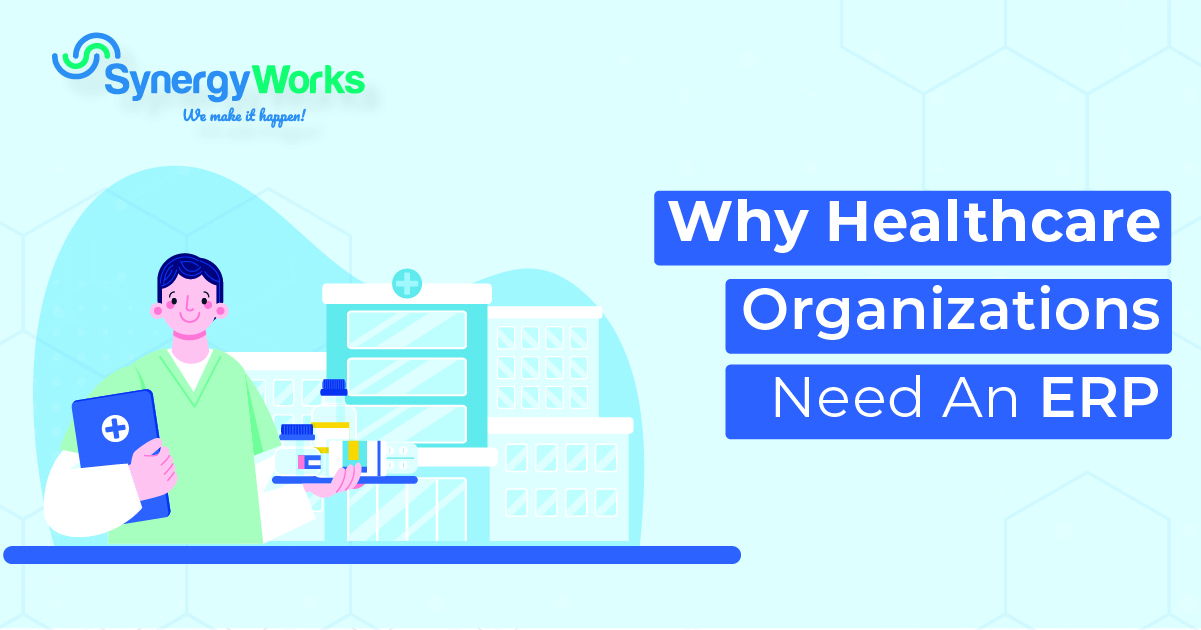Innovations in healthcare technology have not only led to expanded medical treatment options. Still, they have also had a digital impact on operational and clinical processes, allowing for many advantages on a day-to-day basis. Companies must improve internal communication and information flow by using technology and innovative medical solutions, and that’s where ERP comes in.
The adoption of healthcare ERP software has grown dramatically over the years because it comes with powerful features that can deliver high-quality patient care at a low cost of operation. A hospital’s enterprise resource planning software enables it to simplify its operations through a single database and interface.
Overview of the healthcare market
In the Healthcare sector, a rising trend is anticipated to lead to an increase in revenues from $6.5 billion in 2021 to $11.7 billion by 2030. Companies in this industry develop and provide healthcare-related products and services.
By 2025, it is estimated that global Enterprise Resource Planning solutions will reach a valuation of over $100.7 billion, a considerable growth rate.
ERP solutions have a more consistent growth pattern than other IT healthcare solutions, like medical apps, hardware devices, and data care systems.
In light of the fact that your healthcare organization has decided to embrace digital transformation, it is time to implement healthcare ERP solutions that will streamline your process and help you innovate.
What is an ERP system in healthcare?
Enterprise Resource Planning (ERP) is a database software solution that consists of modules that have been designed to monitor data and improve communication between departments through the use of integrated tools.
Besides automating business processes, breaking down data silos, streamlining information, and gaining insights, ERP healthcare solutions help companies make better decisions. Now let’s look closer at why your business needs ERP system solutions.
Role of ERP in the Healthcare Industry
ERP software is an excellent tool for managing core business functions such as financial management, inventory control, customer relationship management, and human resource management within the healthcare industry. Moreover, different hospitals need integrated systems to manage their core services, back office operations, and support services. An ERP system is primarily implemented to reduce operating costs and overheads.
There is a significant need for healthcare providers to achieve two lofty objectives: high-quality patient care and significant cost reduction. To improve patient care, healthcare institutions are constantly upgrading their ERP systems.
Why Do Healthcare Organizations Need an Integrated ERP System?
Healthcare organizations need to work on reducing operating costs without compromising patient care. To overcome these challenges, health providers need an integrated ERP system that improves the efficiency and accuracy of all departments. As a result of improved workflows and less manual work, providers can reduce labor costs while still providing excellent service.
Furthermore, ERP systems provide greater visibility and better access to real-time data, allowing faster and more informed decisions. ERP solutions have the following key advantages:
Implementing best practices in healthcare and streamlining processes
Patients are identified, electronic medical records are managed, and radiology departments, outpatient departments, and emergency rooms are included.
Keeping up with the best practices for member benefits, payments, registration, and provider networks is one of the responsibilities of healthcare institutions.
Planned BI and strategic analysis

Strategic planning and access to accurate insights are possible with ERP systems. Institutional healthcare performance can also be measured with healthcare ERP solutions. There are also resources on patient visits, requisitions, and budgeting. Analyzing healthcare data using business intelligence tools helps identify improvement areas.
Enhances efficiency

A healthcare ERP system provides users with the information they need quickly and accurately. Hospital managers can use graphics visualizations and real-time insights to improve the efficiency of processes and solve problems in the hospital. The process can be simplified once streamlined, saving healthcare organizations time and effort.
Resolves discrepancies
Managing departmental processes can only be accomplished with different software applications or tools. Integration of healthcare ERP solutions can be beneficial in this respect as it consolidates data and eliminates discrepancies between departments. Increasing efficiency is easy when data flows seamlessly between departments.
Provides better care to patients

Patients can receive better care and safety by enabling efficient and real-time communication across departments. With a customized ERP system, healthcare providers can focus more on improving the quality of patient care since the system is designed to streamline administrative tasks.
Business Intelligence and Strategic Planning

Implementing an ERP system in a hospital will help you better understand your business to make more informed decisions. An operational efficiency analysis can be done using this software. Information about budgeting, requisitioning, and patient visiting is available on the site.
Developing a business plan is facilitated by ERP for owners and administrators. Through it, areas for improvement are identified and targeted, boosting overall performance.
Error reduction in operations
Whenever hospital operations are managed manually, there is always the possibility of human error.
ERP software automates hospital operations and reduces billing errors, clinical errors, cost leakages, appointment mismanagement, and other operational problems.
Conclusion
ERP software would revolutionize the healthcare sector by changing the way organizations operate. The lack of it can result in healthcare providers being disconnected, leading to lengthy and rigid operations.
We at SynergyWorks are committed to the advancement of technology and the delivery of superior healthcare solutions. Our company strives to provide the most efficient software applications to ensure that our clients meet and maintain their service standards in providing healthcare.




